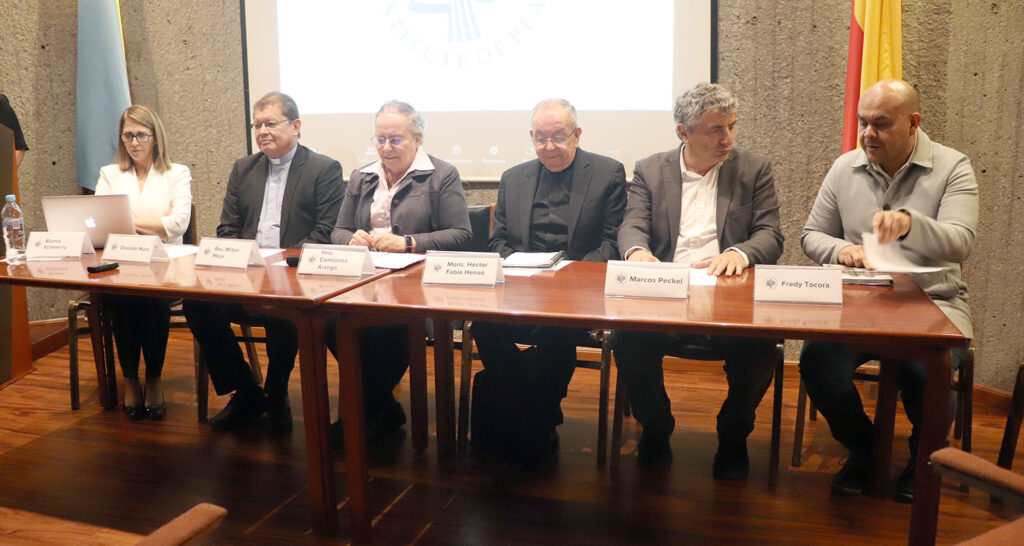On April 4, the Interfaith Initiative for Tropical Forests in Colombia participated in the forum “The Contribution of Faith Actors in Peace Negotiations,” a space for dialogue in which leaders of different churches and faith communities reflected on their shared responsibility to promote actions, from diverse spiritualities, that contribute to the construction of a reconciled and peaceful country.
During the panel “The Contribution of Faith Actors in the Mechanisms of the Ceasefire and Humanitarian Relief,” Blanca Lucía Echeverry, coordinator of IRI-Colombia, emphasized that armed conflicts not only take great costs in loss of human lives, but also produce a strong destruction of natural habitats, promote the unbridled extraction of natural resources and undermine the social and ethical foundations of society. The report of the Truth Commission, established within the framework of the Peace Accords between the Colombian State and the disbanded FARC guerrillas, examined in detail the effects of the armed conflict on the environment. This document revealed how all actors involved in the conflict used and abused nature without considering the fragility of ecosystems, even in the midst of cruel and destructive confrontations.
The meeting, convened by Religions for Peace, the Interreligious Council of Colombia and the United States Institute of Peace, was held in the Auditorium of the Colombian Society of Architects, in Bogotá, and was attended by religious leaders, representatives of important ecclesiastical institutions, such as Father Rafael Castillo, director of Social Ministry; Monsignor Héctor Fabio Henao, accompanying the negotiations with the ELN for the Episcopal Conference of Colombia; Dr. Humberto Shikiya, accompanier of the peace processes for the World Council of Churches; and the members of the advisory council of IRI-Colombia, Pastor Edgar Castaño, of the Evangelical Confederation of Colombia (CEDECOL), and Monsignor Francisco Duque, bishop of the Anglican Church of Colombia and president of the Interreligious Council of Colombia.
“The commitment we have in the Interfaith Initiative for Tropical Forests is to contribute to restoring the deep wounds we have caused to nature, but also to help build a more just and inclusive society, because by protecting forests and controlling deforestation we contribute to protecting the dignified lives of those who are most exposed to natural disasters resulting from the destruction of nature and its biodiversity. Deforestation is one of the greatest obstacles to the realization of environmental justice because of its causal relationship to climate change and the negative effects it causes on biodiversity, air and water quality, and the food security and livelihoods of forest-sustaining communities.” concluded Blanca Lucía Echeverry, coordinator of IRI-Colombia.


